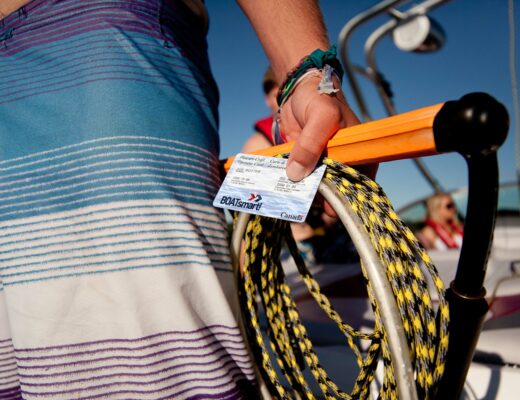Getting out on the water in Rhode Island is an excellent way to spend time, whether you enjoy fishing, kayaking, riding a personal watercraft (PWC), or simply taking a slow, relaxing cruise on the lake.
Make sure you prioritize safety when on the water. You’ll also want to understand Rhode Island boating laws and regulations to ensure you’re boating legally. So, keep reading to learn about the state’s rules for being on the water!

Who Needs a Rhode Island Boater Education Card?
If you were born on or after January 1, 1986, and plan to operate a motorized vessel with at least ten hp in Rhode Island, you must pass a boating education course and receive a boater education card. You also need a boater card to operate a personal watercraft (PWC).
What are Rhode Island’s Life Jacket Requirements?
All boaters must have a U.S. Coast Guard-approved life jacket (or personal flotation device) on the vessel. Every boat needs a personal flotation device (OFD) for every passenger on board.
Additionally, boating safety best practices call for all boaters and passengers not only to have a PFD but to wear it at all times while underway. Accidents on the water can happen very quickly — much faster than you can reach for and put on a stowed life jacket.
Children under 13 years old must wear a Coast Guard-approved life jacket when on recreational boats underway. However, they do not need to wear a PFD if they are below decks or in an enclosed cabin.

Boating and Alcohol
It is against Rhode Island boating laws to operate a boat while under the influence of drugs, alcohol, or a combination thereof. You are considered to be under the influence if you have a Blood Alcohol Concentration (BAC) level of 0.08% or higher.
While anyone under 21 years shouldn’t be drinking, Rhode Island also has laws regarding minors under the influence. A person under the age of 21 cannot operate a boat, waterski, or similar device if they have a BAC of 0.02% or more.
What Are the Penalties for Boating Under the Influence?
If convicted of operating under the influence in Rhode Island, you are subject to the following penalties:
First Conviction (Offenders With a BAC Level Under 0.10%):
- A $100-$250 fine
- Potentially lose the right to operate a boat for up to 45 days
- May receive 10-60 hours of community service
- Could be required to take a boating safety course
- May have to pay a $500 boating safety assessment fee
First Conviction (Offenders With a BAC Level Over 0.10%):
- Could receive a $100-$300 fine and/or imprisonment (for up to one year)
- May receive 10-60 hours of community service
- Could lose the right to operate a boat for 3-6 months
- Could be required to take a boater education course and/or an alcohol or drug treatment class
- Potentially have to pay a $500 boating safety assessment fee
Penalties for Minors Convicted of BUI:
- Suspension of the right to operate a boat for an additional period of 3-6 months
- Suspension of your driver’s license for one year
- Suspension of the boat’s registration
Note that if you operate a boat in Rhode Island, you’ve given consent for a chemical test of your breath, blood, or urine to determine the alcohol content. Refusal to submit to testing can result in penalties.
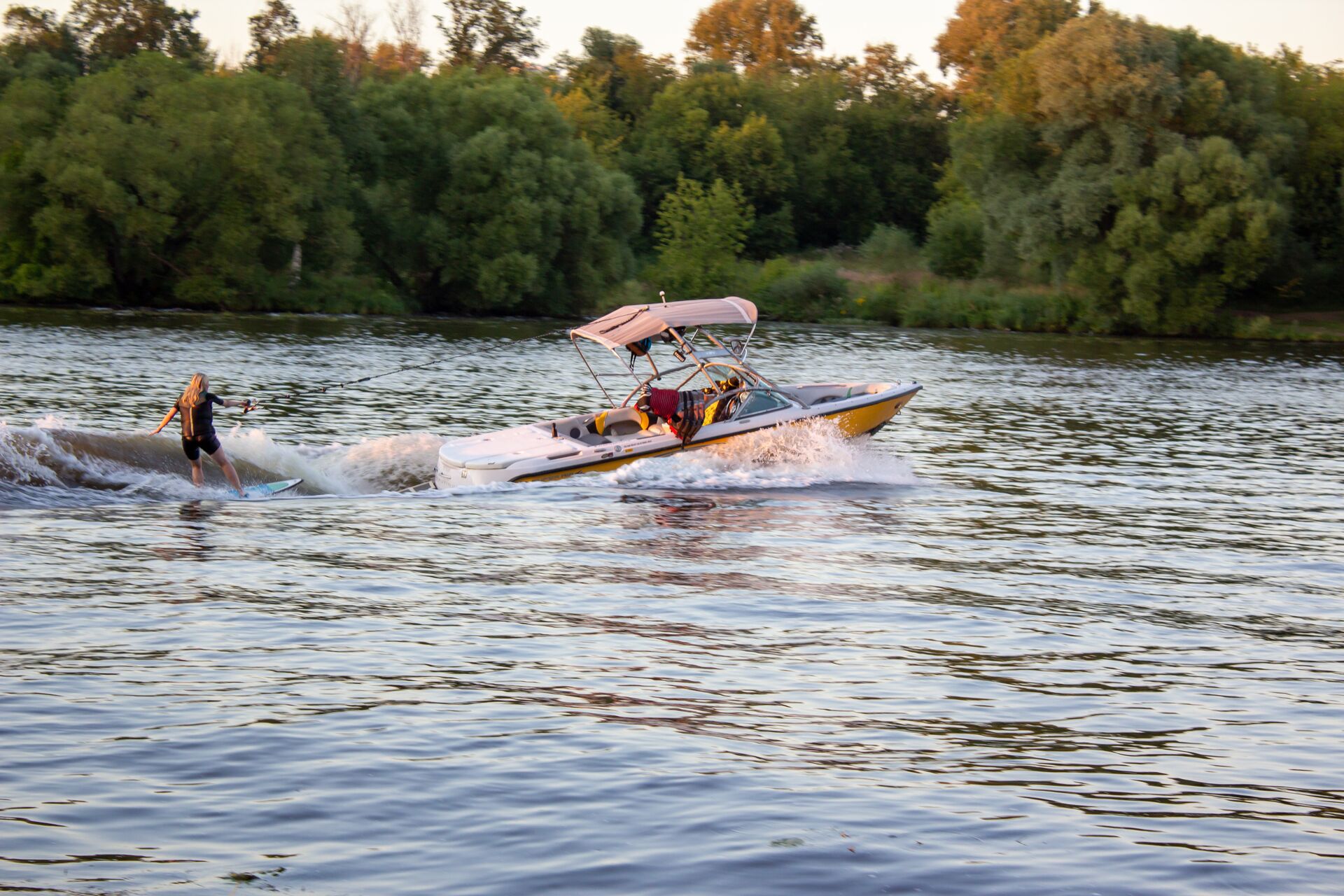
Who Enforces Rhode Island’s Boating Laws?
Several agencies enforce boating laws in Rhode Island, including:
- Harbormasters and assistant harbormasters
- The Department of Environmental Management
- Authorized employees of the Department of Environmental Management
- Authorized police officers
These agencies have the authority to stop and board a boat if they have probable cause to believe that a law violation exists. Refusing to follow directions provided by law enforcement is illegal and can lead to penalties.
Rhode Island’s Boat Accident Reporting Requirements
We hope you’re never in a boating accident — but if you are, the boat’s operator is required to:
- Stop the boat at the scene.
- Give assistance to any injured person or anyone in danger, as long as they can do this without risking their safety or the safety of the passengers.
- Provide their boat information, name, and address to any injured person and the owner of any damaged property.
Filing Accident Reports
You’ll also need to immediately notify the Department of Environmental Management or a nearby office of local or state police if:
- A person is injured and requires medical attention beyond first aid.
- A person is killed.
- A boat is vandalized or stolen (with a value of $2,000).
Submit boat accident report forms within 24 hours of the accident to the Department of Environmental Management.
If a person is seriously injured due to the operator’s reckless operation, the operator can be charged with “operating so as to endanger, resulting in personal injury.” This can lead to imprisonment for up to five years.
When a person dies as a result of an injury received by the operation of any boat in reckless disregard for the safety of others, the boat’s operator is guilty of “operating so as to endanger, resulting in death” and can be imprisoned for up to ten years.
Boaters can get Boat Accident Report Forms from Rhode Island’s Department of Environmental Management.
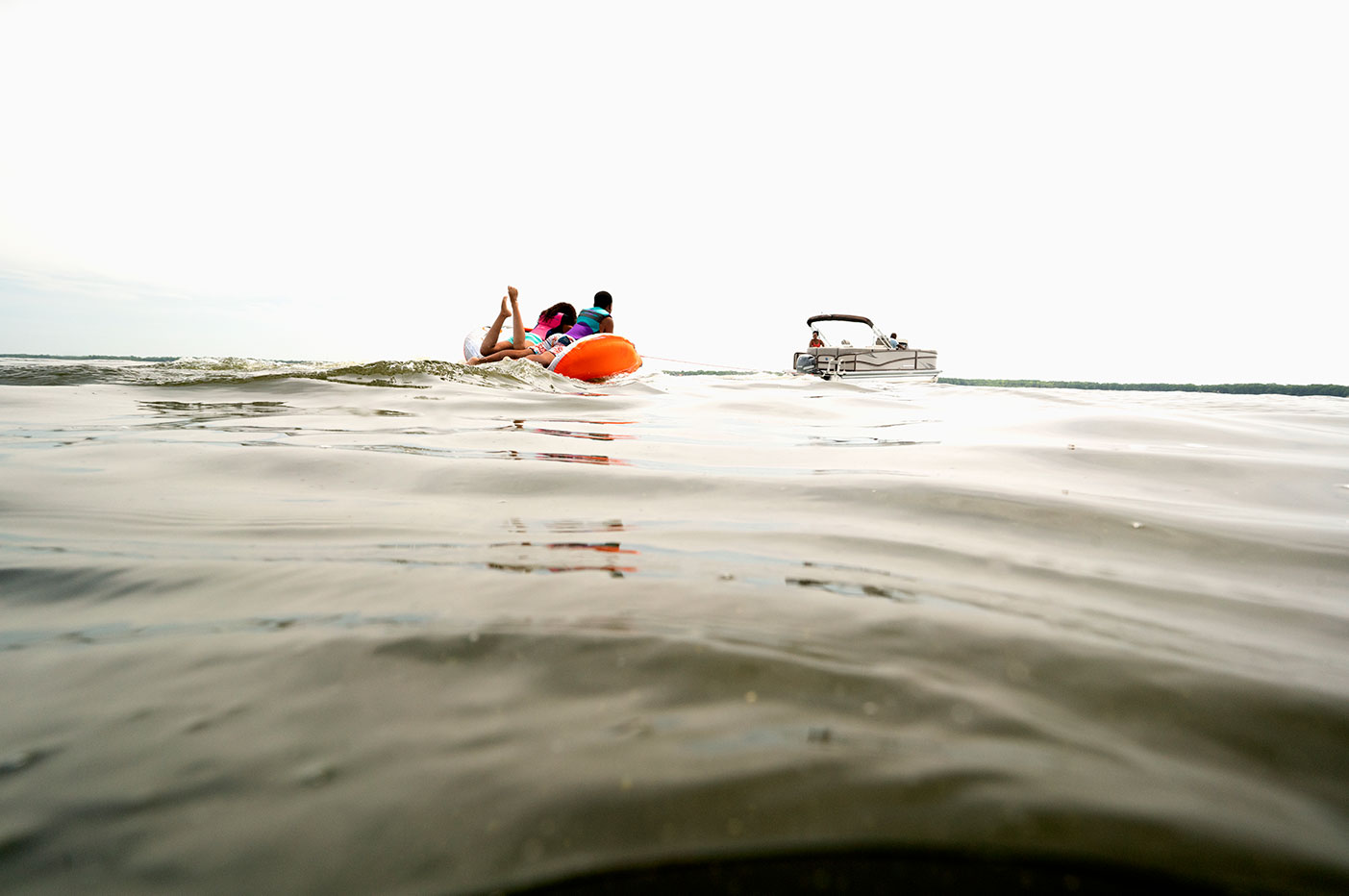
RHODE ISLAND’S TITLING AND REGISTRATION REQUIREMENTS
To legally operate a motorized boat in Rhode Island, you must have a Certificate of Number (registration card) and validation decals. The Certificate of Number must be on the boat during operation. It must also be available for enforcement officers when requested for inspection.
Exemptions to these regulations include:
- A boat registered in another state while using Rhode Island waters for 90 days or less.
- A ship’s lifeboats.
- Boats from another country when temporarily using Rhode Island waters.
- Boats for racing only.
- Canoes and kayaks.
- A human-powered rowboat less than 12 feet long
- A ferry.
Boats with outboard engines also must be registered in Rhode Island. However, it is a one-time registration that does not expire.
Rhode Island registers boats on a two-year basis. However, boat owners have the option to register boats longer than 30 feet on an annual basis. The cost is half of the two-year fee.
A boat registration year is March 1st through the last day of February of the following year. Get the Certificate of Number by submitting an application and the correct fee to the following address:
Department of Environmental Management
Licensing and Registration
235 Promenade Street
Providence, RI 02908
Telephone: 401-222-6647
If you lose your Certificate of Number or it is destroyed, you can order a replacement. Just complete and submit a form with the processing fee within 30 days.
When to Notify the Department of Environmental Management
In specific situations, boat owners must notify the Department of Environmental Management. Do this within 15 days in any of the following situations:
- A change of boat ownership
- You have a change of address
- Your boat is stolen or recovered
- The boat is destroyed or abandoned
When a boat’s ownership changes, a new registration application must be filed within 30 days. However, the registration number assigned to the boat will stay the same.
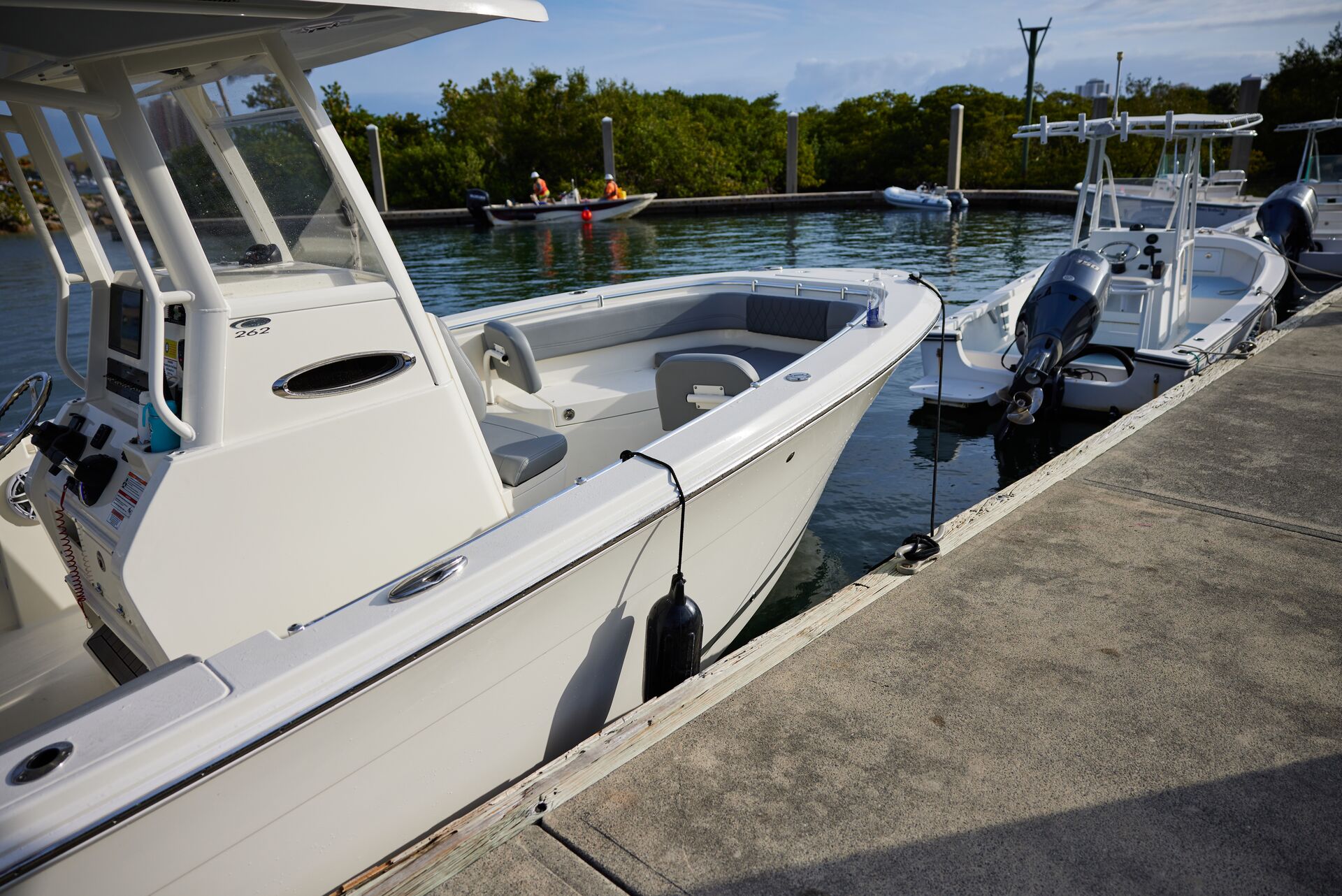
Registration Number and Decal Placement
Where should you put your boat’s registration and decal? Rhode Island requires the following:
- Apply for the numbers by painting them, permanently affixing them, or as a decal. The numbers should be at the forward half of each side of the boat. Do not display any other numbers in this location.
- The number must be in bold block letters and at least three inches high. They must also be in a color contrasting with the color of the boat.
- Numbers must be separated from the letters by a space or hyphen.
- You must be able to read the number from at least 100 feet away.
- The number must be read from left to right.
- Validation decals must be affixed on both sides of the boat. They must be placed in line with and to the right of the registration number.
Note that the same placement requirements apply to personal watercraft (PWCs).
Titling Requirements
In addition to registration, boats must be titled in Rhode Island.
Exemptions include:
- Surfboards
- Rowboats
- A ship’s lifeboats
- Human-powered inflatable boats
- Boats federally documented by the Coast Guard
- Boats less than 14 feet in length
For more information about safe boating in Rhode Island, contact the Department at:
Rhode Island’s Department of Environmental Management
Licensing and Registration
235 Promenade Street
Providence, RI 02908
Telephone: 401-222-6647
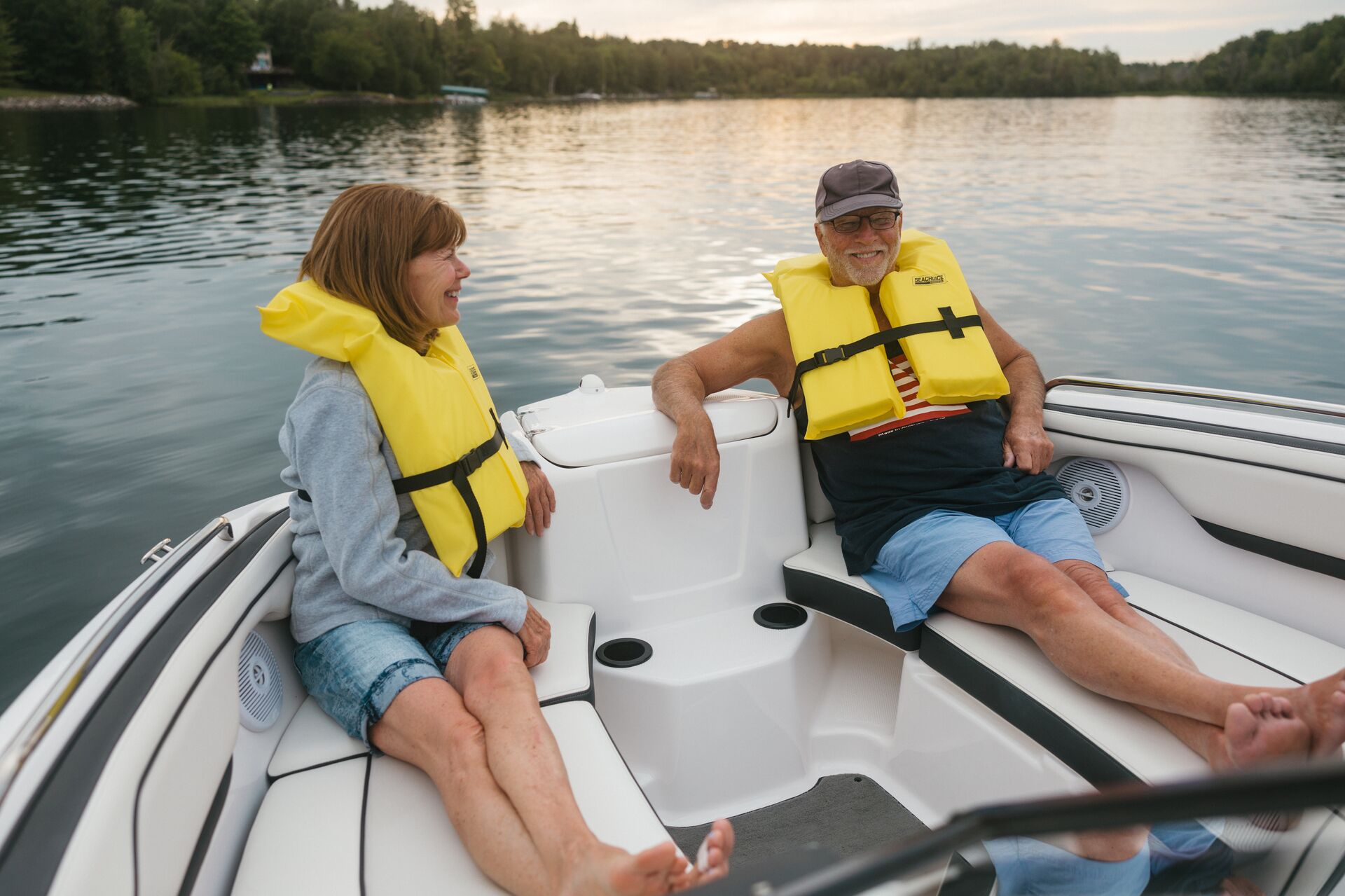
Follow the Rules and Enjoy Rhode Island Boating
Responsible boaters follow the rules, whether they are Rhode Island boating laws or the regulations in your state or province! Safe, responsible boating leads to more opportunities for fun on the waterways.
To learn more about boating safety, take an online boating education course through BOATsmart! You’ll learn safety essentials that help protect you and others when enjoying your boat or water activities.
First published in May 2017. Content most recently reviewed and updated for relevancy and accuracy October 16, 2024.





